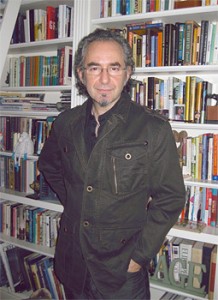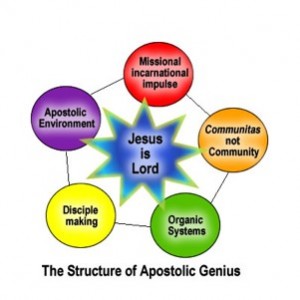 Since it’s release in 2006, Alan Hirsch’s The Forgotten Ways has catalyzed conversation across Churches striving to become missional. I’ll be reviewing the book as I read it over the next few weeks.
Since it’s release in 2006, Alan Hirsch’s The Forgotten Ways has catalyzed conversation across Churches striving to become missional. I’ll be reviewing the book as I read it over the next few weeks.
The Forgotten Ways is an attempt to answer the question How did the early church go from being a ragtag collection of outcasts to the dominant social force in the Roman Empire? The impetus behind the question is to discover what it is that the early church had, along with seeming unstoppable movements like early Methodism, Pentecostalism and the underground church in China. The common thread between them is what Hirsch calls “The Apostolic Genius.”
Chapter 1 focuses on Hirsch’s own story of being enveloped into a band of Christ-followers, whose lifestyles had focused on drugs, fornication and prison. This eventually became the South Melbourne Church of Christ, and the South Melbourne Restoration Center. For personal reasons, I find it tremendously encouraging to know that one of the most influential thinkers of my time came out the Restoration Movement.
 The chapter shares about successful and failed attempts to help lead his church to 1) engage with non-Christians in their community, and 2) transform passive churchgoers into active missionaries. This led them to determine what their most basic values were, and attempt to restructure their organized church down to a loose network with shared values.
The chapter shares about successful and failed attempts to help lead his church to 1) engage with non-Christians in their community, and 2) transform passive churchgoers into active missionaries. This led them to determine what their most basic values were, and attempt to restructure their organized church down to a loose network with shared values.
Chapter 2 encapsulates much of Hirsch’s reasoning. Without getting lost in philosophical meanderings, he addresses the big changes in our culture we’re all dealing with, from Christendom to post-Christendom, and from modernity to postmodernity. Unlike many thinkers who seem to stop at deconstruction, Hirsch uses these concepts to help define what it means to live as a missionary in the 21st century western world.
His most helpful concept is a scale showing the openness of outsiders to the gospel. The scale goes from m1 (cultural similar, but non-christian) to m5 (ethnically and culturally dissimilar non-Christian.)
The big idea? We’re having a hard enough time reaching the people most like us. If we even want to consider reaching those different from us, something drastic must change.









 Tweets
Tweets